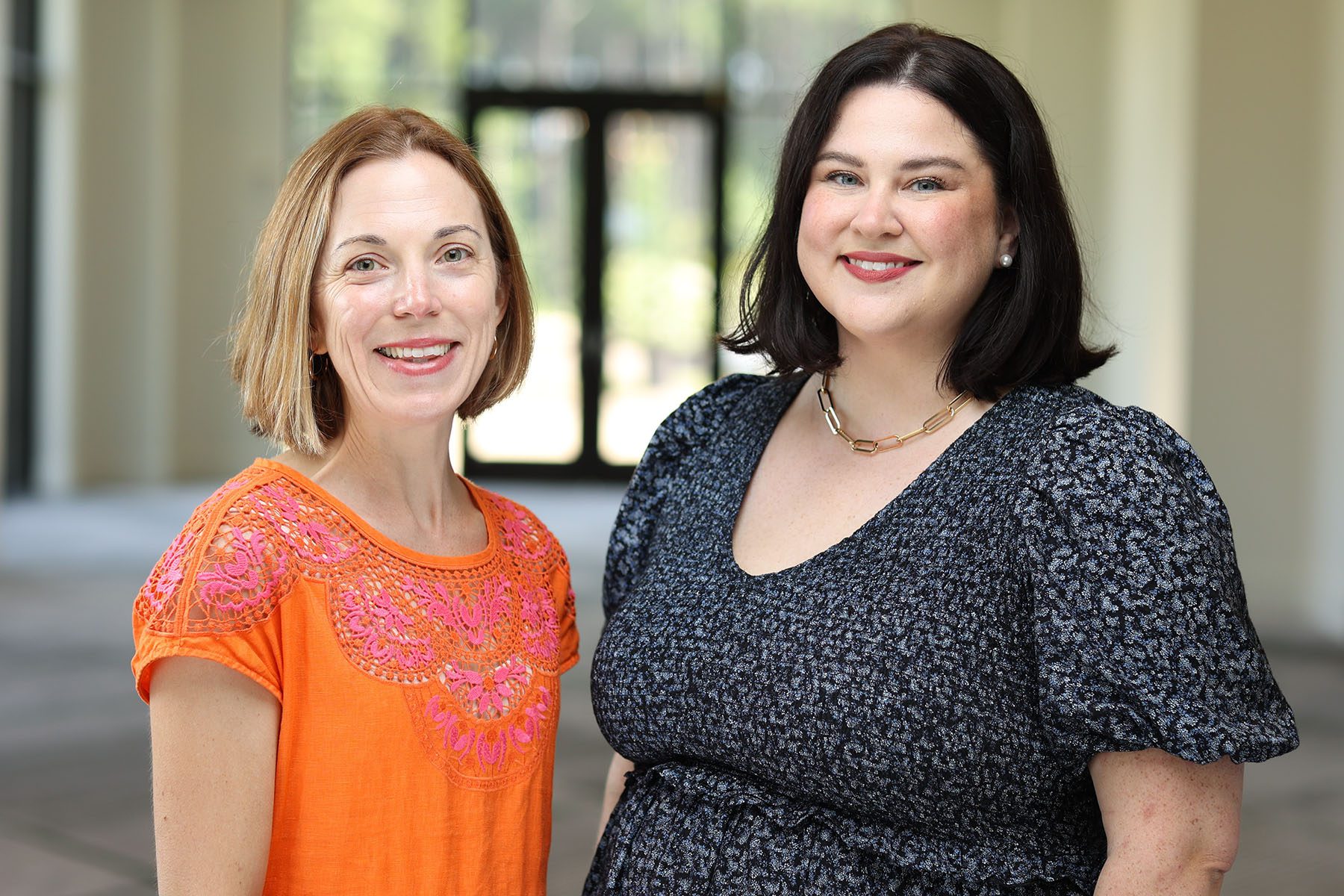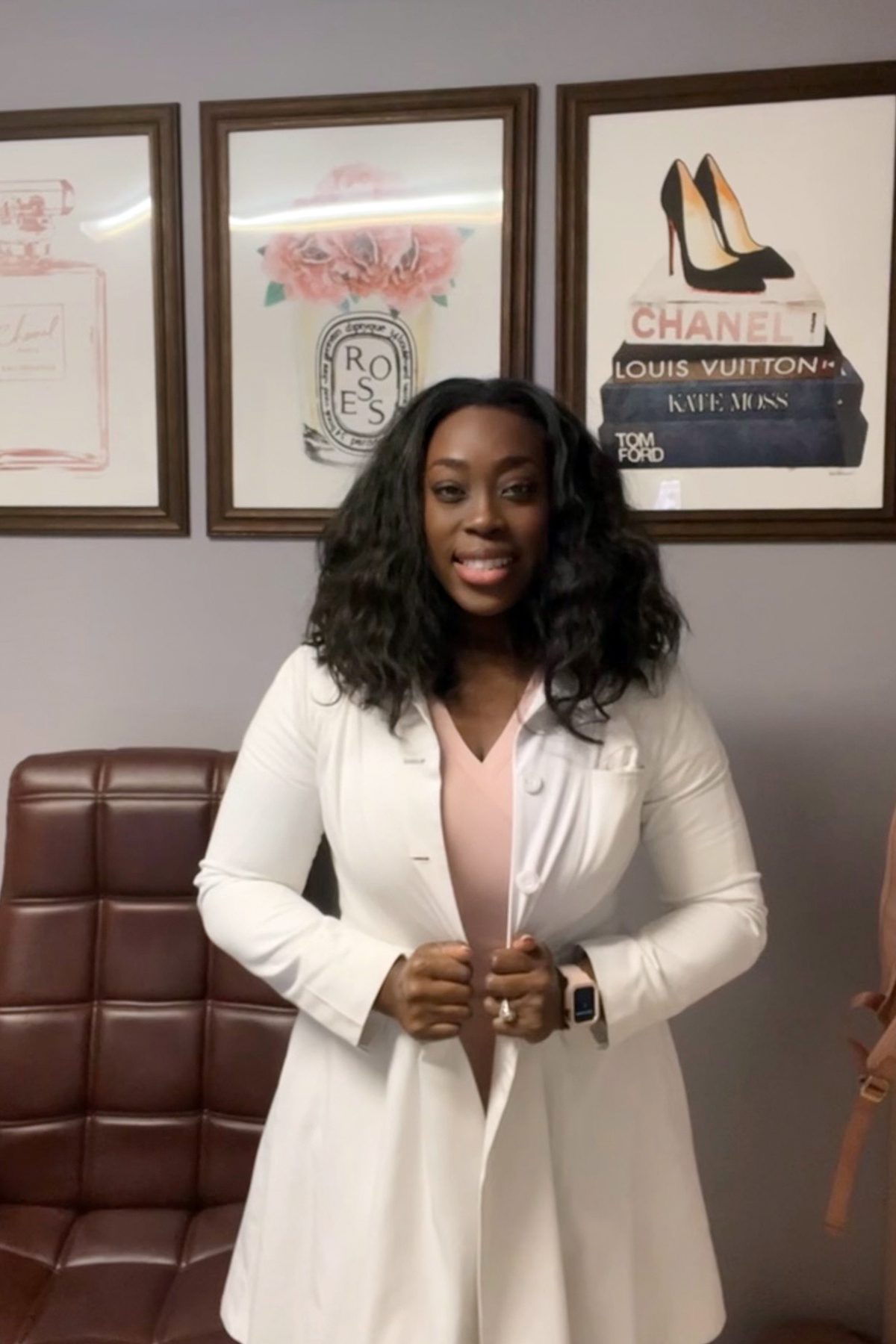JACKSON, Miss. — Two years ago, after an emergency cesarean section at a Mississippi hospital, Sherika Trader was denied a tubal ligation. Trader, now 33, was told that to have her tubes tied, she had to have a second child or a husband’s permission, even though she wasn’t married.
Jasymin Shepherd had heavy menstrual cycles because of a birth control pill prescribed after the birth of her son 13 years ago. The symptoms continued even after she stopped taking the medication. Last year, a doctor in Jackson responded by offering Shepherd, 33, a hysterectomy, which she didn’t want.
The experiences left the women feeling as though providers acted like “robots,” or, worse, they felt stereotyped. Black women already face major barriers to accessing health care, including provider shortages and racial bias rooted in the medical system.
But with contraceptive care, which deals with deeply personal patient preferences, they must also contend with providers who dismiss their concerns. Decisions about whether — or when — to have a baby and how to prevent pregnancy are not as standardized as care for other conditions. Yet providers hand out prescriptions or recommendations while disregarding a patient’s specific circumstances, Shepherd said.
Late last year, the White House made new recommendations for a federal program that provides funding for free contraceptives, wellness exams, and certain cancer screenings. Health officials want to regain the trust of patients like Trader and Shepherd, who feel as though their doctors don’t always listen to them. The goal of the Title X program, which distributes grants to states and other groups for family planning, is to let patients dictate the care they want, said Jessica Marcella, who is the deputy assistant secretary for population affairs at the U.S. Department of Health and Human Services and oversees the Title X program.
-
More like this
- ‘This is our new normal’: Fertility treatment advocates are gearing up to fight abortion bans and personhood laws
- Support for abortion measures was greater than support for Democratic candidates in some states
- Abortion bans are barring people from life-saving pregnancy care, medical groups warn
“Our belief, and that of the family planning field, is that it is essential that you respect the interests, needs, and values of a client,” she said. Providers shouldn’t force patients to take a birth control method because it’s more effective, she said, or deny them a particular method because they think a patient might want more kids.
“What we don’t want is a provider to create trauma or do unintentional harm,” Marcella said.
In Mississippi, efforts to implement that approach have started with a change in who gets to administer the Title X funds, taking that responsibility from the state and giving it to a four-year-old Jackson-based nonprofit named Converge. The Biden administration’s decision this year to give Converge the $4.5 million grant marks the first time in four decades that Mississippi’s health department hasn’t won the federal family-planning grant.
Converge doesn’t offer family planning services. Instead, the group provides funding to a network of clinics statewide, organizes provider training, helps clinics navigate technology challenges, and keeps them stocked with supplies. For example, when a provider was having trouble printing out a survey that patients took about their contraception preferences, Converge co-founder and co-director Jamie Bardwell shipped the clinic a wireless printer.

But across the South, the attempt to change the culture of family planning care faces old and new obstacles. Some are deeply rooted in the medical system, such as the bias long faced by Black women and other women of color. In addition, contraception care is limited in the conservative South, and the Supreme Court’s June decision to overturn Roe v. Wade has led to the curtailing of abortion access across much of the region.
Black women often feel disrespected and dismissed by their providers, said Kelsey Holt, an associate professor of family and community medicine at the University of California-San Francisco. She co-authored a 2022 study in the journal Contraception in which dozens of Black women in Mississippi were interviewed about their experiences getting contraceptives.
Women told researchers that they struggled to get appointments, faced long wait times, and had to put up with condescending behavior. Many of the women said providers didn’t inform them about alternatives to the contraceptive Depo-Provera, a progestin shot administered once every three months, despite the known side effects and the availability of other, more appropriate options.
Trying to undo decades of such damage — and overhaul how providers deliver family planning care — became even more difficult after the Supreme Court decision and the closure of abortion clinics across the South. Suddenly, women in Mississippi, Alabama, and about a dozen other states could no longer get abortions.
“A major service has been cut off,” said Usha Ranji, associate director for women’s health policy at KFF. Title X funds cannot be used — and have never been used — to pay for abortions. But, she said, clinics can no longer present abortion as an option, hampering their ability to provide comprehensive counseling, a key requirement of the Title X program.
Many Mississippians can’t afford to travel across state lines to terminate an unwanted pregnancy. In 2020, 84% of Title X clients in the U.S. had incomes at or below 200% of the federal poverty level, and 39% were uninsured. Even women in Mississippi with the means to travel will face hurdles in nearby states, like Georgia and Florida, where abortion is not fully banned but access has been scaled back.
Even before the Supreme Court decision, access to family planning care in Mississippi came with hurdles and judgment.
In 2017, when Mia, who didn’t want her last name used for fear of legal and social repercussions, became pregnant for the second time, she called the local health department in Hattiesburg for advice on obtaining an abortion. She had a daughter and wasn’t financially or mentally prepared to have another child. The health department contact sent Mia to a faith-based, anti-abortion center.
“I felt judged,” Mia said about the call. Eventually, she terminated the pregnancy in Jackson, about 90 miles away, at the state’s sole abortion clinic, which closed in July. “Ultimately, I did what was best for me,” said Mia, who went on to have a son several years after the abortion.
The loss of abortion care in Mississippi puts more pressure on family planning providers to win the trust of their patients, said Danielle Lampton, who also co-founded Converge. Patient-centered care is the “bedrock of what we do,” Lampton said.
Both Trader and Shepherd serve on Converge’s patient experience council and receive occasional stipends for providing their perspectives to the nonprofit.
Providers shouldn’t force or pressure low-income patients to use long-term contraception, such as an intrauterine device, to safeguard against pregnancy, said Dr. Christine Dehlendorf, a family physician and researcher at UCSF, who is advising Converge.
Pressuring Black women to use IUDs, implants, and other long-term contraception is reminiscent of a history in which Black women were sterilized against their consent, she said. Even today, studies show that providers are more likely to pressure women of color to limit the size of their families and recommend IUDs to them. These women also have a harder time getting a provider to remove the devices and getting insurance to cover the removal cost, Dehlendorf said.
Too often, Wyconda Thomas, a family nurse practitioner near the Arkansas border, meets patients who are skeptical of birth control because of a bad experience. Many of her patients continued Depo-Provera shots even after they gained an unsafe amount of weight — a known side effect — because they weren’t offered other options.

Even if patients come in for another reason, Thomas talks to them about family planning “every chance I get,” she said. Four years ago, Thomas opened the Healthy Living Family Medical Center in Gunnison, a 300-person town that is 80% Black. The clinic receives Title X funds through Converge. Still, Thomas doesn’t force contraception on patients — she respects their decision to forgo a pill, patch, or implant.
But Title X funds help Thomas stock a variety of contraception methods so patients don’t have to worry about driving to a separate pharmacy.
“My job for them is to get them to understand that there are more methods and there’s no method at all,” Thomas said. “And that’s a whole visit by itself.”
KHN (Kaiser Health News) is a national newsroom that produces in-depth journalism about health issues. Together with Policy Analysis and Polling, KHN is one of the three major operating programs at KFF (Kaiser Family Foundation). KFF is an endowed nonprofit organization providing information on health issues to the nation.





